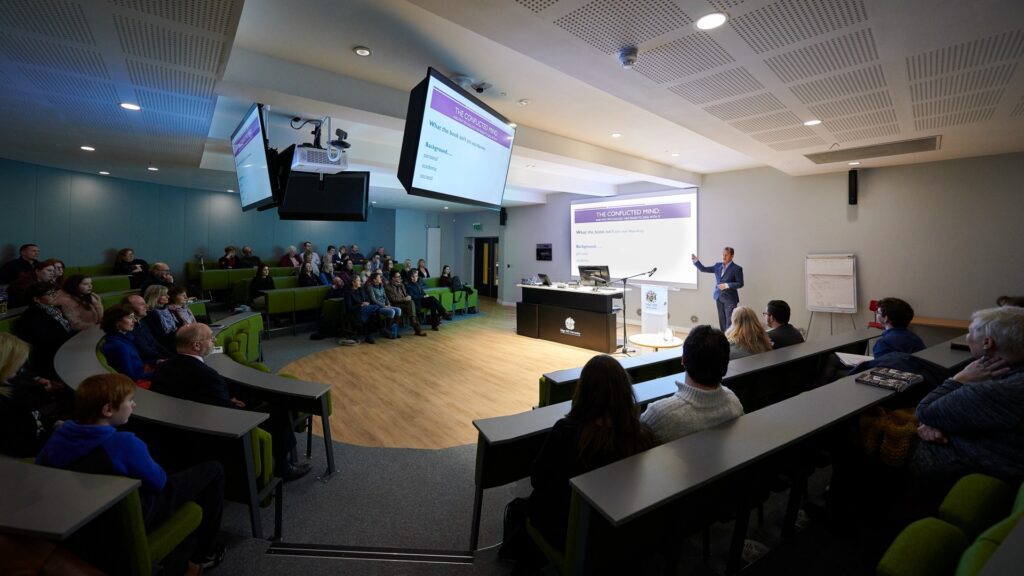
Clinical psychologists promote good psychological health and aim to help those experiencing psychological difficulties. They work with people of all ages and can support patients with a wide range of health problems including anxiety, addictions, psychosis and more.
Think you might be interested in a career in clinical psychology? Looking to find out more about what the job might involve, and how to get there? Look no further. This blog aims to answer all your burning questions about working as a clinical psychologist.
What is a clinical psychologist?
A clinical psychologist is a healthcare professional that helps people of all ages who are experiencing physical, mental or emotional distress. They work with patients to improve physical and psychological wellbeing. The conditions they can help people work through include eating disorders, mental illness, addiction, and relationship problems.
Some clinical psychologists choose to specialise in a particular area such as children’s care, dementia care, or working with offenders, as some examples.
Can clinical psychologists prescribe medication?
Clinical psychologists are not able to prescribe medication. They work closely with doctors and psychiatrists, who are medically trained and licensed to prescribe medication to their patients if needed.
Where do they work?
Most clinical psychologists in England work within the NHS, but there are also opportunities in the social care sector, education, prisons, charities, and with independent providers.
Who do they work with?
Clinical psychologists work with people of all ages, from all walks of life. They often work with individuals, but can also work with couples, groups and families. They collaborate with other healthcare professionals like doctors and nurses, as well as social workers and probation officers.
What does an average day look like?
Clinical Psychologist Rebecca Chan, writing for Prospects.ac.uk, describes a typical day in her role within the NHS.
“My day might involve a multidisciplinary team meeting, collaborating with different professions and agencies (NHS, local authority and third sector) to facilitate holistic programmes of support for individuals and families.
I might work with clients on psychological assessment and formulation, to understand their situation and agree therapeutic goals. I mostly offer individual or group therapy, and also contribute to consultation, service evaluation and audit.”
Source: prospects.ac.uk
How do they treat their patients?
Clinical psychologists treat their patients through a holistic treatment plan that they put together for them following assessment. Treatment can include therapy, advice and counselling.
Do they diagnose?
Clinical psychologists can diagnose mental health problems. They assess their patients’ conditions to discover what underlying issues might be causing their physical or mental distress. They do this by interviewing patients, observing them, and using psychometric testing.
How do you become a clinical psychologist?
To become a clinical psychologist, you will need a Doctorate in Clinical Psychology. To achieve this, you first must have an accredited psychology undergraduate degree. This grants you Graduate Basis for Chartered Membership (GBC). You will then need to take some time getting work experience in a clinical setting.
You need to complete a Doctorate in Clinical Psychology – and this should be accredited by the British Psychological Society (BPS) and approved by the HCPC.
Finally, you need to be registered with the Health and Care Professions Council (HCPC).
If you have an undergraduate degree in something other than psychology, you can complete a MSc Psychology conversion course.

What qualifications are required?
In summary, the qualifications you need to be a clinical psychologist are:
- An accredited psychology undergraduate degree
- Or a MSc Psychology conversion course
- Doctorate in Clinical Psychology
These, with relevant work experience, will allow you to register with the HCPC and apply for clinical psychologist jobs.
What skills do they need?
People skills like empathy, listening and being non-judgemental are really important as a clinical psychologist. You should be driven to help people, and have great communication skills too.
A good background in research is also important, as well as critical analysis skills – these will develop as you study. Resilience and coping well in difficult situations is another important skill for this job.
What experience is required?
Each course provider will have specific requirements, but clinical work experience is a requirement for entry on most Clinical Psychology Doctorate courses.
Most universities look for one to two years of full-time experience. The most relevant roles you could look to gain experience in are Research Assistant and Assistant Psychologist, which you can apply for once you have an undergraduate degree.
What is the salary like?
If you’re working within the NHS, the starting salary for trainee clinical psychologists is £32,306. Once you’re fully qualified, your salary will increase to around £40,057. With experience, you can earn between £47,126 and £63,862. There are plenty of progression opportunities, too – and consultant-level clinical psychologists can earn up to £90,387 within the NHS. Salaries in private organisations can vary. Source: Prospects.ac.uk and NHS Agenda for Change.
A perfect starting point for your career as a clinical psychologist is Edge Hill University’s BSc (Psychology) course. All of our BSc Psychology degrees are BPS accredited, and completion of the course grants you Graduate Basis for Chartered Membership (GBC).
Sources:
https://www.prospects.ac.uk/job-profiles/clinical-psychologist
https://www.healthcareers.nhs.uk/working-health/working-nhs/nh
November 8, 2022


